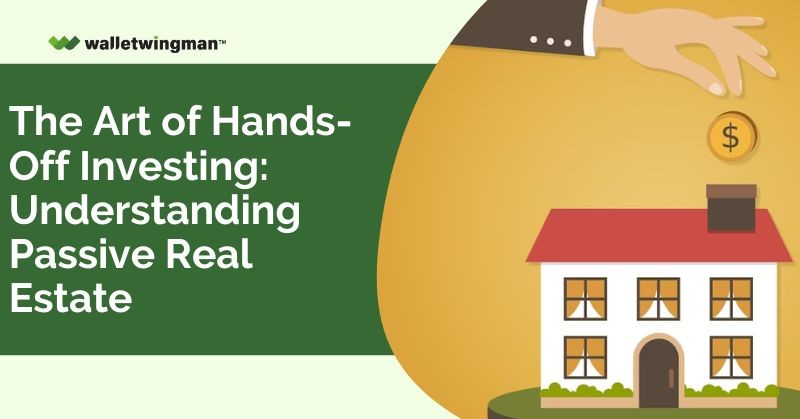Commercial real estate is big business. The industry has since bounced back from the stock market and housing crash of 2008, which remains the most disastrous real estate Syndication bubble bust in the recent past. According to estimates by Grand View Research, the global real estate market size is projected to hit USD 5.85 trillion by 2030, representing a compound annual growth rate (CAGR) of 5.2% from 2022.
Now, eight years is a significant forecast period, and smart investors are already cashing in on the bull run by setting up lucrative real estate investments. One way to enter this profitable industry is via real estate syndication investments.
But for you encountering this term for the first time, you’re probably wondering what it means. Well, this article is for you.
We’ve prepared a definitive guide to real estate syndication. Read on for insights into capitalizing on this recently popularized real estate investment vehicle.

What Is Real Estate Syndication?
Real estate syndication is a type of crowdfunding initiated to invest in real estate properties. It’s one of the most profitable ways how to invest in real estate without buying property.
Like any crowdfunding arrangement, real estate syndication involves pooling investment capital with like-minded individuals. It can involve anywhere from a handful to hundreds of potential investors. The only condition is that the parties must have expressed interest in pursuing an identified investment opportunity.
What Is The History Of Real Estate Syndication?
Real estate syndication is a type of joint venture project. Such projects have been around for centuries.
However, real estate syndication regulations are relatively new. Congress, for instance, began passing joint venture acts in the early 20th century. Many laws aimed to regulate the sophisticated and sometimes highly volatile real estate industry.
Among the first acts is The Securities Act of 1933, which requires all new privately-owned real estate ventures to be registered with the Securities and Exchange Commission.
There’s also the JOBS Act 2012 that laid the ground for real estate syndication as we know it today. The enactment of this act allowed individual investors to access privately-listed real estate properties through crowdfunding. It also introduced the element of accreditation, where those intending to invest in real estate syndication companies would meet certain minimum criteria.

Photo Credit: Pixabay.com
What Are The Benefits Of Real Estate Syndication?
The biggest perk of real estate syndication is that it’s a passive way to invest in one of the most involved industries. This investment vehicle saves you the hassles of market research, property acquisition, rent collection, and ongoing management. All you need to do is make an initial capital investment. You can then start earning passive income after your investment breaks even.
According to the best books on real estate investing, real estate syndication is also an ingenious way to pool investment resources. The concept is ideal where the parties have a shared investment goal but cannot raise the requisite capital individually.
Below are other benefits of real estate syndication;
1. Higher Flexibility
Real estate syndication allows you to pick the investment properties of your choice. That contrasts other popular investment vehicles in this industry, such as real estate investment trusts (REITs).
2. Income Diversity
The fact that real estate syndication lets you choose a property to invest in, coupled with a lower per-investment amount, means you can easily diversify your portfolio. This can be an excellent strategy to spread the risk and boost your income streams.
3. Tax Benefits
Favorable taxation is yet one of the most noteworthy real estate syndication benefits. While real estate earnings are subject to income tax, owning a real estate property allows you to capitalize on the tax benefits passed down through your K-1 tax filings. These include lower capital gains tax and deductible mortgage interest.
4. Reduced Liability
Most real estate syndication investors participate via a limited liability entity. This arrangement cushions you from the investment risks of being a general partner.
5. Value Appreciation
There are many real estate syndication examples to invest in. Regardless of the deal you sign, these investments tend to gain value over time. So, unless the unforeseen happens and the current property market bubble bursts, you can only be assured a higher return on investment (ROI).
Who Are The Parties In Real Estate Syndication?
A syndicator is the first party in a real estate syndication deal. Also known as the sponsor or general partner (GP) is an individual or company whose mandate entails identifying, acquiring, and undertaking ongoing management of real estate properties.
Going by the scope of their engagement, a syndicator must be an entity that’s well-versed in the real estate industry. They must be able to conduct rigorous market research and take care of any underwritings involved in the property acquisition.
Investors are the other core element of a real estate syndication structure. Also known as limited partners (LPs), these individuals enter joint investment deals with the syndicators in exchange for an ownership stake in the venture.
Investors are entitled to a share of all the profit benefits realized from real estate syndications despite not playing any active role in property acquisition, financing, or daily management. That makes the role of investor one of the best paying jobs in real estate investment trusts. Their primary end of the bargain is to raise the requisite investment funding.
Lastly, most real estate syndication arrangements also include a third party known as a joint venture (JV) partner or equity partner.
These individuals have access to large networks of people who may invest in the investments. They serve as an intermediary between syndicators and limited partners. Some may also help with financing, market research, and tax documentation.
It’s worth noting that real estate syndication models aren’t cast in stone. That means the number of parties can vary from one deal to another. For instance, you’ll realize that some syndications exclude equity partners.

What Is The Procedure For Investing In Real Estate Syndications?
As with any venture, due diligence is paramount before entering a real estate syndication deal. Rushing into these arrangements with half-baked information is the surest way to blow your hard-earned savings.
Now, there are several real estate syndication strategies you can explore before taking the plunge. But first, you’ll need to establish whether you fulfill the eligibility criteria.
To be eligible for investment in real estate syndications, you must first be an accredited or sophisticated investor.
Regulations require accredited investors to have an individual annual income of at least $200,000 or a joint income of at least $300,000 with their spouses. Alternatively, their net worth must exceed $1,000,000.
On the other hand, sophisticated investors must possess in-depth knowledge and experience of the real estate market. While the general partners typically conduct most of the market research, investors also need some knowledge to accurately evaluate the merits and demerits of entering a syndication deal.
The next step in the real estate syndication process entails determining the specific syndication to invest in.
Now, there’s no such thing as an ideal deal. The suitability of a deal will depend on your assessment of the investment proposal. However, the following factors might help you make an informed choice;
Investment Goals
Real estate syndication can be a short-term or long-term project. It’s important to define your investment goals before signing a syndication deal, as that will determine the property to invest in.
Besides, remember that real estate syndication returns will depend on the investment duration. That’s all the more reason to define your goals.
Property Location
The concept of digital real estate has gained momentum in the recent past thanks to its hands-off approach to investing in real estate properties. However, when mulling real estate, it’s imperative to research the property’s location vis-à-vis the projected returns.
For instance, properties in prime areas typically generate higher rental income and attract higher taxation.
Availability of Funds
After all is said and done, you need capital to invest in real estate. This capital would be funded from your savings or borrowed from a lender. Either option is fine. Just ensure the funds are available ahead of time.
The good news is that mortgage lenders are never far away. A little research is all it takes to find a reputable company that offers reasonable lending terms.
If you choose to borrow, you could also engage a professional mortgage broker. You only need to understand how to become a mortgage broker so you’re familiar with the qualities to look for in these professionals.
Fees and Taxes
Understanding real estate syndication fees before deciding to invest in these ventures is important.
Perhaps this is also where you’d need to learn about the tax obligations applicable to this type of investment.
Access to Funds
The last key factor before you consider passive investing in real estate syndication is fund accessibility.
Only sign deals provide unhindered access to your funds, be it the initial capital or ongoing payments.

Wrap Up
Real estate syndication is one of the numerous ways to generate passive income from the property market. It provides higher access to investment capital and a hands-off approach to earning real estate income on the side.
And while there may be certain real estate syndication risks to contend with, this investment instrument can be ultimately rewarding. Just be sure to conduct your due diligence before signing a syndication deal.


